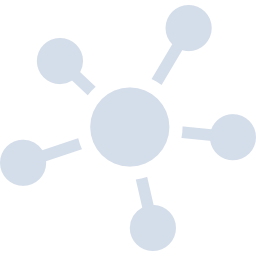Beyond Fake News: Mitigating the Spread of Epistemically Toxic Content
In 2016, “fake news” took center stage as a contributor to surprising political events. Reluctant to do so at first, Facebook and Twitter have since taken steps to fight dubious posts, and have drawn on independent fact checkers to validate and flag stories that are reported as fake by users. Misinformation spreaders have not rested on their laurels either. They have started creating deepfakes, namely, artificial realistic faces and videos that make it appear as if people said or did something they didn’t, and artificial intelligence-generated images to create seemingly real profile pictures on Facebook, Twitter, and LinkedIn to lend the users an air of credibility. At the same time, individuals are regularly posting and sharing misinformation and disinformation without any apparent help or encouragement from malign actors, often without malevolent intent.
The category of “epistemically toxic content,” of content that is false, unsubstantiated or misleading is wider than that of fake news. Much epistemically toxic content is situated in the gray area between absolute truth and utter falsehood.Epistemically toxic content, its types and manifestations, the mechanisms of its spreads, and effective ways to fight it are still only partially understood by academic researchers. And many suggested solutions to the problem are problematic. Tasking Internet mega corporations with filtering content for truth and falsehood may prove as a cure that is worse than the disease. States do not have a good track record regulating free flow of politically inconvenient information either.
The workshop aims at advancing the study of epistemically toxic content online and ways to mitigate its spread, by bringing together philosophers and researchers in other relevant disciplines, including cognitive science, communications and media studies, Science and Technology Studies, and information systems.
Participation in the workshop is free. To receive a participation link, please pre-register by April 19, 2021.
Programme
Day 1: Wednesday, April 21
17:00 – 17:05 | Welcome Greetings
Professor Daniel Statman, Chair, Department of Philosophy, University of Haifa
17:05 — 18:05 | Session 1: Improving Users’ Skills
Axel Gelfert | Philosophy, Literature, History of Science and Technology | Technical University of Berlin | Cultivating epistemic routines for navigating toxic epistemic environments
Sarit Barzilai | Education | University of Haifa | Beyond technological fixes and nudges: An educational approach to addressing misinformation
18:15 — 19:15 | Session 2: Norms of Posting and Sharing
Sacha Altay | Cognitive Science | Institut Jean Nicod | Understanding the spread of fake news
Glenn Anderau | Philosophy | University of Zürich | Passive testimony: Exploring social media as an epistemic environment
19:30 — 20:30 | Session 3: Public Manipulation
C. Thi Nguyen | Philosophy | University of Utah | The Seductions of Clarity
Richard Rogers | New Media & Digital Culture | University of Amsterdam | Mainstreaming the fringe: How misinformation propagates on social media
Day 2: Thursday, April 21
17:00 – 17:05 | Welcome Greetings
Professor Opher Etzion, Chair, Department of Management Information Systems, Zefat Academic College
17:05 — 18:05 | Session 4: Global Perspectives
Fábio Ribeiro | UTAD | CECS-UMinho| Assessing the quality of the online comments: A methodological proposal from journalistic websites in Portugal, Brazil and Spain
Desmond Onyemechi Okocha, Samson A. Shaibu, and Melchizedec J. Onobe | Mass Communication | Bingham University | X-raying the multidimensional implications of institutionalized fake news and disinformation on Nigerian pluralistic society
18:15 — 19:15 | Session 5: Mitigating the Flow of Toxic Content
Isaac Record | Lyman Briggs College | Michigan State University | People, Posts, and Platforms: Reducing the spread of online toxicity by contextualizing content and setting norms
Aviv Barnoy | Management Information Systems | Zefat Academic College | Philosophy | University of Haifa | Mitigating the spread of epistemically toxic content
19:30 – 20:40 | Closing Session
Presenter: Karen Frost-Arnold | Philosophy | Hobart and William Smith Colleges | Epistemic Trash and Toxic Content
Commentator: Anat Ben David | Sociology, Political Science and Communication | Open University of Israel
Concluding Remarks:
Arnon Keren | Philosophy | University of Haifa
Boaz Miller | Management Information Systems | Zefat Academic College
 NordEthics
NordEthics